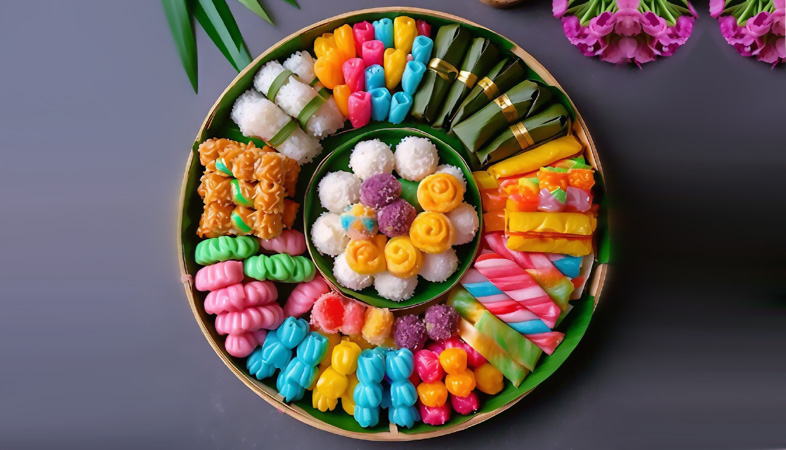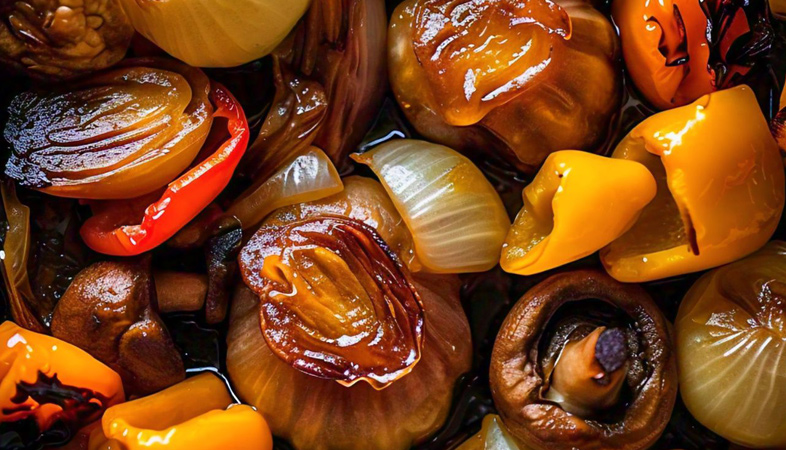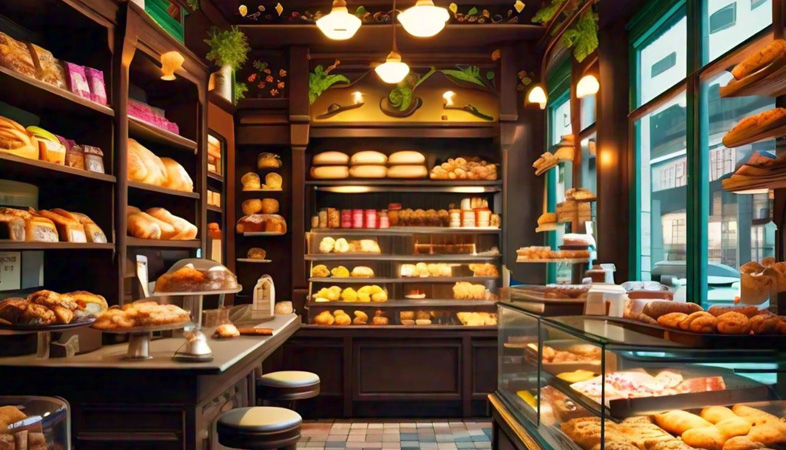Middle Eastern Sweets: Crafting Date-Based Confections and Other Regional Delights
Among the most beloved aspects of this culinary tradition are its sweets, often crafted with a blend of fruits, nuts, and aromatic spices.
Middle Eastern cuisine is renowned for its rich flavors,
intricate spices, and use of high-quality ingredients. Among the most beloved
aspects of this culinary tradition are its sweets, often crafted with a blend
of fruits, nuts, and aromatic spices. Date-based confections hold a special
place in Middle Eastern dessert culture, given the region's rich history of
date cultivation. These confections are not only delicious but also hold
cultural significance, representing hospitality and generosity. By using
simple, natural ingredients, you can recreate these decadent sweets at home,
bringing the flavors of the Middle East into your kitchen.
One of the most iconic date-based desserts in the Middle East is the Ma'amoul. This traditional shortbread-like cookie is filled with a variety of fillings, with date paste being the most common. To make these delicate cookies, the dough is typically made from semolina, butter, and a touch of sugar. The date paste filling is prepared by blending dates with a small amount of water, cardamom, and sometimes nuts like walnuts or pistachios for added texture and flavor. Once the dough is prepared, it is shaped into small round or molded forms, filled with the date mixture, and then baked until golden. The result is a sweet, crumbly cookie that offers a perfect balance of rich dates and a soft, buttery texture.
Another beloved dessert made from dates is Date Makroud, a sweet semolina cake that is soaked in syrup. The combination of dates, semolina, and honey makes it a staple in many Middle Eastern homes. The date paste is used as a filling, and the dough is shaped into squares or diamonds, then deep-fried until golden and crisp. After frying, the makroud is soaked in a fragrant syrup made from honey, sugar, and rosewater. This step is crucial, as it helps infuse the dessert with the sweetness and floral notes that are characteristic of many Middle Eastern sweets.
For a refreshing and lighter option, you can try crafting Date and Coconut Balls. These easy-to-make treats are a favorite among those who want a no-bake dessert that is both healthy and indulgent. To make these date and coconut balls, simply blend pitted dates with shredded coconut and a hint of vanilla extract. The mixture is rolled into small bite-sized balls and coated in more coconut or cocoa powder for added flavor. These treats are naturally sweet, rich in fiber, and provide an excellent energy boost, making them a popular snack throughout the day.
Date syrup, also known as Silan, is another key ingredient used in Middle Eastern sweets. Silan is often drizzled over desserts, added to cookies, or mixed into pastries to provide natural sweetness with a hint of caramel-like depth. It can also be used as a sweetener in cakes or even as a topping for pancakes or waffles. Making Silan at home involves simmering dates in water until they break down, then straining the mixture to yield a thick, dark syrup. This syrup can be used as an alternative to refined sugar in many dessert recipes, offering a more wholesome and rich flavor.
If you're interested in creating a more complex, layered dessert, Baklava is a great option to try. While not always date-based, this dessert often incorporates dates into the filling. The layers of thin, buttery phyllo dough are stacked with a mixture of crushed nuts—typically pistachios, walnuts, or almonds—along with honey or syrup. Dates can be added to the nut mixture to provide a chewy, caramelized texture that contrasts with the crispness of the phyllo. After baking, baklava is soaked in syrup, which is infused with lemon juice or rosewater to balance out the sweetness.
Lastly, Date Pudding is a comforting dessert enjoyed across the Middle East. This warm, spiced pudding uses dates as a key ingredient, adding both sweetness and depth of flavor. The pudding typically consists of dates, butter, sugar, flour, and a variety of spices such as cinnamon, nutmeg, and cardamom. It is often served with a dollop of whipped cream or a drizzle of syrup on top. The richness of the dates combined with the warm spices makes this dessert perfect for colder months or festive occasions.
Middle Eastern sweets offer a diverse and indulgent experience, with date-based desserts playing a starring role. Whether it's the crumbly Ma'amoul, the syrup-soaked Makroud, or the simple Date and Coconut Balls, these treats showcase the rich, complex flavors of the region. By experimenting with these recipes, you can bring the tastes of the Middle East into your home, delighting friends and family with confections that have been enjoyed for centuries. The natural sweetness of dates, combined with fragrant spices and the use of nuts, creates a dessert experience that is both comforting and satisfying.
.png)



















 at The Aviyaan.jpeg)









